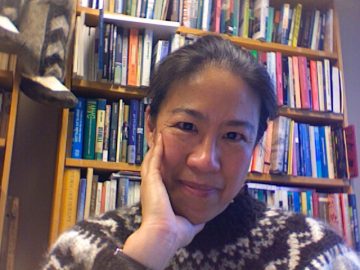
Tina Loo is a professor in the Department of History at UBC. She has a longstanding interest in exploring the dynamics of state power, which began in her first book, an examination of colonial rule in British Columbia and continued in a second monograph dealing with conservation in twentieth century Canada. The latter approached wilderness and wildlife as fields of power. It charted the emergence of the state’s interest in conservation, examined the role of science and sentiment in identifying what should be conserved, from whom, and how, and identified the impacts of efforts to save Canada’s wildlife on both the beasts themselves and the people who depended on them for their livelihoods. More recently, in a series of articles, she has turned her attention to hydroelectric development, explored the rationale for and the impacts of these megaprojects, including the relocation of people deemed in the way of “progress.” Her current work, “Moved By the State,” explores this further. An analysis of forced relocation in postwar Canada, it analyzes how race and class, as well as attitudes about rural and urban society, shaped the meaning of a “good life” and influenced the exercise of power at a time when the Canadian state was expanding. Ultimately, her objective is to give the state a face and a history, one that acknowledges the scope and intensity of its power but in a way that also recognizes the possibility for different outcomes and ultimately for change.
